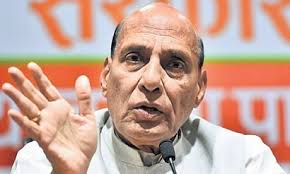Rajnath, Doval likely to visit China to attend SCO meeting

India’s top leaders are expected to travel to China next week for crucial Shanghai Cooperation Organisation (SCO) meetings. Defence Minister Rajnath Singh and National Security Adviser Ajit Doval will likely lead the Indian delegation at two separate high-level gatherings.
Sources say Doval will attend the SCO National Security Advisers’ meeting from June 24 to 26, while Singh is expected to be in Qingdao from June 25 to 27 for the SCO Defence Ministers’ conference.
This marks the first time in months that Indian and Chinese officials may meet face-to-face after border tensions escalated in 2020. The meetings could act as a reset in their cautious relationship.
Understanding the Role of the SCO
The Shanghai Cooperation Organisation brings together eight nations, including India, China, Russia, and Pakistan. Formed in 2001, the SCO focuses on security, terrorism, and regional cooperation. With China currently holding the presidency, several meetings are scheduled before the leadership summit in Tianjin later this year.
India’s participation shows its commitment to regional dialogue without compromising its core interests. The SCO also gives India a platform to engage with countries it rarely works with bilaterally.
Key Objectives of the Visit
India’s goals at these meetings are clear and focused. Singh and Doval will push for better cooperation while raising India’s concerns on several issues.
- LAC Border Situation
India hopes to push for meaningful progress on de-escalation along the Line of Actual Control (LAC). Singh may meet Chinese Defence Minister Admiral Dong Jun on the sidelines. This will be the first such meeting since October 2024, when the last disengagement efforts were discussed. - Fighting Terrorism Together
Doval plans to deliver a strong message on cross-border terrorism, especially with Pakistan also attending the summit. India will urge other members to adopt a zero-tolerance policy on terrorism. This message will target not just the region but global forums watching these interactions. - Improving Regional Stability
With instability growing in Afghanistan and Central Asia, India wants to focus on joint security measures. These include better border monitoring and faster intelligence sharing. - Balancing Global Relationships
As global alliances shift, India continues to chart an independent path. Through the SCO, it stays connected to China and Russia without compromising ties with Western democracies. The meetings allow India to reinforce its voice in multilateral diplomacy.
India’s Cautious Optimism
India has kept communication with China limited since the Galwan clash in 2020. Although both nations have held several rounds of military talks, trust remains low. Indian officials remain cautious and view the SCO meetings as a platform, not a breakthrough.
The Ministry of External Affairs (MEA) has not confirmed the travel officially. But insiders say both leaders are preparing for a carefully measured engagement. Any potential bilateral meeting between Singh and Chinese officials would be symbolic unless backed by tangible outcomes on the ground.
Pakistan’s Participation Adds Complexity
Pakistan is also sending representatives to the SCO meetings. Defence Minister Khawaja Asif and NSA Moeed Yusuf are likely to attend. India, however, does not plan to engage directly with the Pakistani delegation. Instead, it will use the platform to call for stronger regional action against terrorism without naming any specific country.
This balancing act highlights India’s strategy — to speak firmly on terrorism while avoiding any direct confrontation at multilateral events.
Why This Visit Matters for China
China sees the SCO meetings as a chance to highlight its leadership in the region. Amid increasing isolation from the West, China wants to position the SCO as a successful model of regional cooperation. Hosting Indian leaders strengthens that image.
However, India remains watchful. It does not want these talks to be used by China for optics. India will make sure that its participation sends a message of strength and clarity, not submission or compromise.
What Comes Next?
The meetings in China could set the tone for India-China relations in the months ahead. Though no major announcements are expected, the visits may act as confidence-building steps. If the discussions stay focused and constructive, future engagements could follow.
India will continue to press for peace on its terms — through dialogue, diplomacy, and firm ground presence along the LAC. The SCO is a stage, not the whole show.
Final Thoughts
Rajnath Singh and Ajit Doval’s likely visit to China underscores India’s careful diplomatic balancing. These meetings offer a platform to discuss urgent matters like border tensions, terrorism, and regional stability.
But India’s participation comes with a clear message: it remains open to dialogue but will not compromise its sovereignty or core interests. Whether these talks build a path forward or just preserve the status quo will depend on actions, not just words.






